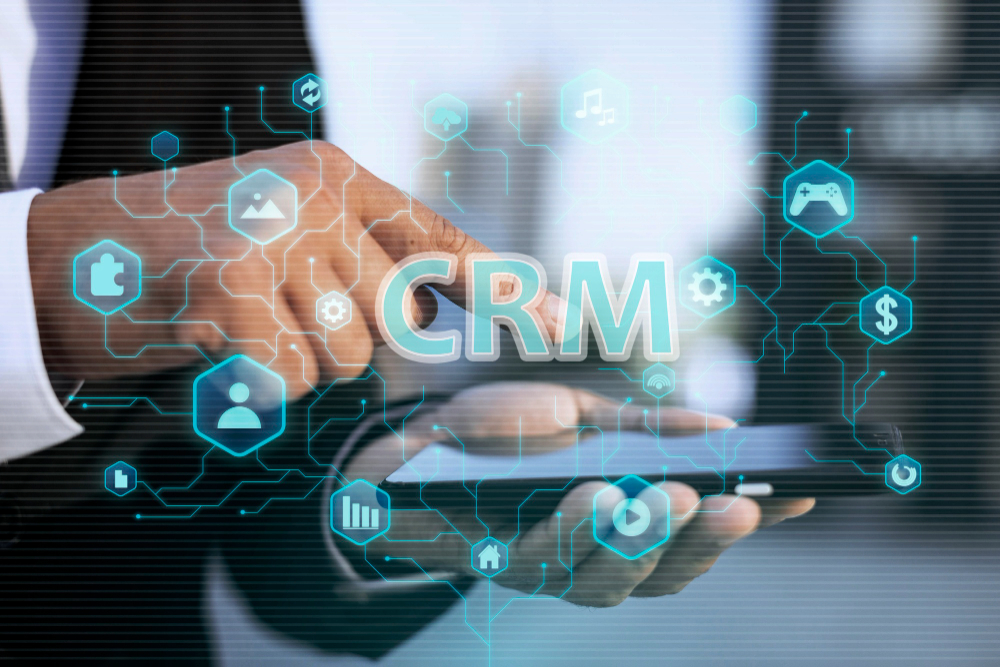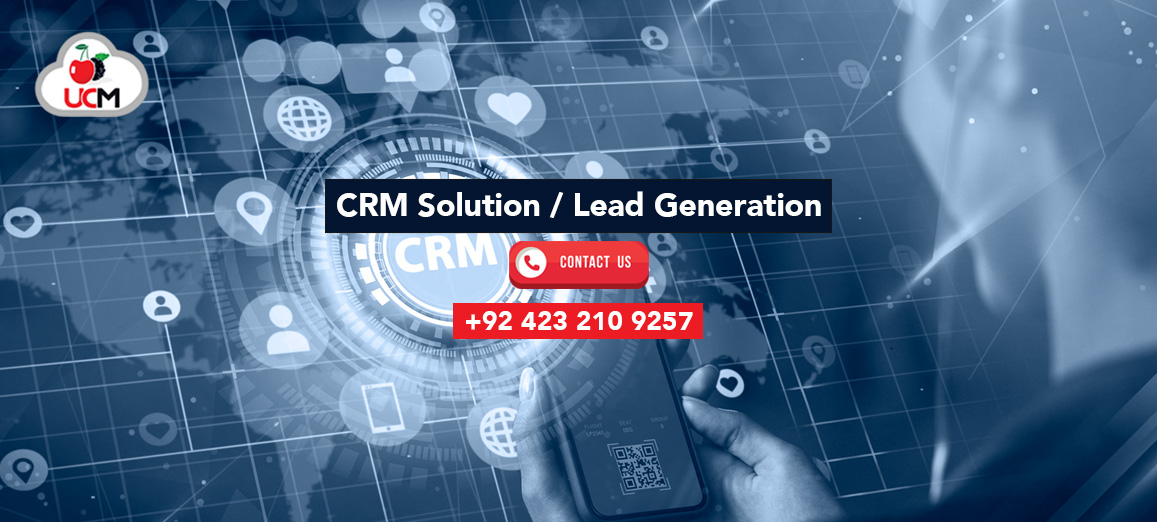Can CRM for Customer Service Resolve Customer Issues Faster?
Importance of CRM for Customer Service
A company can only exist with its customer base so how companies manage its customer database determines its success. Finding customers or converting leads into paying ones is challenging. However, once you find and convert them, you face a new challenge: developing and maintaining strong relationships. CRM for Customer Service can organise, centralise and streamline your business communication. The better your customer service and support teams know your customers, the faster they can resolve their issues for stronger relationships. Let’s delve into the basics and benefits of this technology for your business.
Understanding the Significance of Customer Service
These services focus on resolving customer issues immediately and efficiently. Customer service can be called the frontline of interaction between a company and customers. In addition, customer service teams provide various channels like email, phone, chat and social media to respond to customer issues and problems. These services resolve customer concerns by providing the right solution. Meanwhile, a good customer service experience can turn dissatisfied customers into loyal brand ambassadors. Thus, companies should monitor metrics like resolution rate, response time and customer satisfaction scores to maintain quality of services and improve relationships.
What is CRM for Customer Service?
It refers to technologies and strategies that help businesses manage and analyse customer interactions. More than 65% of customers prefer excellent customer service over advertising. The main goal of CRM software is to improve customer retention and customer relationships. Both these goals are strongly associated with the sales growth of a business. This also means teams should have a dedicated customer service tool to offer personalised services and promote upward sales trends. CRM systems serve as a central repository to store essential customer information ranging from contact information to purchasing records to provide personalised and faster responses.
How Customer Service & Sales CRM are Different?
Businesses require tools to manage customer databases especially those growing or expanding. A well-organised database helps companies optimise interactions with their customers. Service CRM is an efficient solution to track the needs and behaviour of your customers. Meanwhile, sales CRM focuses on managing sales and lead creation. Let’s learn about the differences between these two systems.
- Function: In most companies, sales CRM has become essential for sales and marketing teams. Meanwhile, customer service CRM increases the efficiency of customer support teams. Reporting & analytics are essential functionalities of both systems.
- Features: Both CRM types vary based on features and key roles. For instance, the key roles of sales CRM are lead generation, management and nurturing, sales forecasting, and win-loss analysis. Conversely, customer service CRM offers automated workflow, omnichannel support, and proactive customer support.
- Marketing Actions: Businesses need information about the latest marketing trends to drive sales. Service/sales CRM provides marketing automation to analyse meaningful insights about marketing trends.
- Sales Management: Sales CRM automates sales management increasing the performance and productivity of your sales and marketing teams. Businesses can identify sales trends in existing and potential customers.
- After Sales Management: It is necessary to keep the existing customers engaged. A reliable customer support CRM allows companies to stay connected with their customers even after purchasing experience.
Astounding Benefits of CRM Software For Companies
1. Allow Tracking Customer Interaction
Many people think that CRM system is used to store customer information. However, it can prove a game-changer for your customer service teams allowing them to track customer interactions. They can access all the touchpoints with each customer e.g. emails, phone calls, or live chat. Meanwhile, each time you communicate with your customer, the CRM system enables you to see all responses and conversations to make you prepare for every interaction.
2. Facilitate Monitoring of Customer Satisfaction Level
CRM systems become crucial while managing relationships, especially with unhappy customers. Your sales reps can use the data insights to handle unforeseen situations to avoid recur. When your teams constantly remain in touch with customers, they can judge their satisfaction level. They can use conversation data to understand patterns and trends.
3. Improves Customer Service Experience
Your customer support teams can provide better support through CRM software. It is important to note that when customers use a business product and services, they also consider their experience with the company besides quality and pricing. This is why most customers also willingly pay for premium services for excellent customer service or leave the brand in case of a bad experience.
4. Increase Profitability & Productivity
Companies can track and monitor their sales reps’ performance by exploring the number of customers who talk to them. Your virtual teams can access all the features of cloud CRM software on mobile devices to ensure maximum productivity.
5. Resolve Issues & Complains Efficiently
The help-desk ticketing system in the CRM empowers your internal teams to prioritise customers and organise all tickets. Businesses can ensure customer issues are quickly resolved and all data remain safe for future reference.
How To Use CRM Software for Best Output?
1. Send Automated Emails
Marketing automation and automated email responses have a great role in streamlining business communication with clients. For instance, an automated email is a way to confirm to customers their request has been received. The company can add links to emails to guide customers to FAQ pages, the latest offerings or already-developed resources.
2. Get Reports & Analytics
Companies can extract useful insights and key performance indicators from CRM software. They can compare customer interactions, the longest and shortest response time and the agents who resolved most customer complaints. Meanwhile, they can explain why every call or interaction matters for the company.
3. Personalise Interactions
When your customer service and support teams have access to all customer data, they can better understand their preferences and needs. They can ensure personalised services by understanding customer issues and reviewing past interactions. These genuine insights enable your teams to communicate well with your customers.
Final Note
Providing exceptional customer service experience has become crucial for companies to outshine competitors. They need to go a step further to meet heightened customer demands with CRM. CRM for Customer Service is an efficient tool for storing, organising and managing customer information. It adds value to your customer service efforts, empowers your teams to understand their customer pain points and offers faster resolution to keep them loyal and satisfied. Contact CherryBerry UCM for expert guidance in getting the right CRM system for efficient customer service operations.
How Customer Management Software Streamlines Interactions?
Importance of Customer Management Software
Do your customers feel annoyed and ignored when calling your business because your customer service and sales teams are not on the same page? Customers have a relationship with your company not with agents or departments. This is why they expect immediate service from your teams who should clearly understand customer needs from previous interactions so they can start where they left off. Enter Customer Management Software as an efficient solution to manage, organise and maintain customer data enabling your agents to provide a positive customer experience. Let’s dive deep into the basics and benefits of this software for your business.
Understanding A Customer Management System
It can be defined as a group of all applications, processes and systems required to manage a business relationship. As customer data is an important asset of a business, your teams need updated, clean, accurate and correctly formatted data to ensure a high level of service while saving time and money. Storing, maintaining and retrieving data from emails and spreadsheets can be tedious for your teams. There are chances of misplacing or deleting information due to disorganised data. The customer management tool stores all customer, accounts, leads and sales information in one central place and automates various sales, marketing and customer service tasks.
Is A Management System Different From CRM?
Yes, they are often used interchangeably but differ in functions. A customer management system can include CRM, helpdesk software, call centre software and marketing tools. However, each type of CRM is designed to cater for a particular business need. For instance, operational CRM software automates and streamlines your sales, marketing and service processes. Likewise, analytical CRM helps companies in organising back-office operations and analysis. Finally, a collaborative CRM is the best choice for companies looking to promote a collaborative work environment between departments by sharing information. It keeps all your teams on the same page about customer service so they can efficiently deal with customers.
Which Sectors Need CRM Management Solutions?
Technological advancements have increased this sales tool’s efficiency, allowing companies to achieve their business goals efficiently. This powerful software can collect customer data from various sources and analyse it to provide detailed customer insights. Companies can use these insights to strengthen their business relationships. Additionally, the companies whose end goal is product and service promotion to increase profit margin should use CRM tools. Here are some sectors that can leverage CRM tools to improve operational excellence.
1. Hospitals & Healthcare Sector: These services keep patient records and often need to track their medical history. They can efficiently manage their patient data through CRM tools.
2. Sales & Commerce: The customer management solution can help businesses that deal with sales and commerce in managing all aspects of customer data. They can access the records and analytics to get useful insights.
3. Banking & Finance Services: Many companies need solutions to organise and manage new leads and identify sales opportunities from available data. A CRM tool can help them manage data from all sources.
4. Call Centres: They assist businesses in maintaining customer records, good client relationships, tracking new sales opportunities and offering consistent customer support. This has made CRM a necessary tool for call centres to manage all aspects of customer relationships.
5. Telecommunication Sector: They can handle a large volume of customer complaints and inquiries using this system. This ensures quick resolution, personalised interactions and enhanced customer satisfaction.
6. Hospitality & Travel: These services can leverage customer management systems to understand customer preferences, manage reservations, track activities and provide a seamless customer experience.
How Can A Customer Management Tool Can Transform Your Business Relationships?
1. Ensure Personalised Interactions
The management system provides a detailed view of client information and historical records for the convenience of sales representatives. They can use this data to offer personalised responses by understanding the context of the conversation. Moreover, companies can get insights from data streams coming from customer service, sales, marketing and social media.
2. Zero Lead Loss
Companies collect lead data from undocumented sources. Manual data collection can affect the data accuracy or you can miss some important information. The customer management system ensures the collection of lead data from every source with accuracy and without any doubt. Your sales and marketing teams can easily follow up, engage and nurture every lead to convert leads into paying customers.
3. Facilitate Lead Segmentation & Distribution
Your sales and marketing teams can easily distribute leads with CRM software. They no longer need to waste time on junk leads. Instead, they can invest their time and efforts in qualified leads ready to convert and meet your quality criteria. The software segments the leads based on interest location and sales agent availability. Later, it assigns the leads to your sales reps so they can achieve their sales targets.
4. Allow Tracking Activities
This software can also track the activities of your existing customers to identify cross-sell or up-sell opportunities to develop long-lasting relationships. You can also automate tasks and reminders with a customer management solution to avoid missing sales opportunities and keep customers loyal to your services. This way, your teams can also organise the tasks by notifying the customers about the next step in the sales.
Ways to Streamline Customer Relationship Management Process
This involves many steps from understanding customers and handling inquiries to nurturing leads and following up. The customised CRM tool or customer management software can improve the process. They can streamline customer management tasks at reasonable costs. For instance, it automates sales tasks, collects and organises data from omnichannel communication and keeps customers engaged with marketing automation. Your sales and customer service teams can handle customer queries efficiently and get feedback to improve customer satisfaction. They can extract useful insights from the software to boost positive customer service experience.
Wrapping Up
Tracking and monitoring customers through emails and spreadsheets is a good starting point for a business but isn’t the best option as you grow. Customer Management Software is a reliable tool for your sales and customer support teams to boost customer retention by delivering positive customer experience and maximising conversions through personalised interactions. Companies can make informed business decisions using data insights. They can also manage entire company sales and marketing data through an easy-to-use interface. Ready to achieve new levels of efficiency in your customer-related aspects? Contact CherryBerry UCM to identify opportunities and increase profitability.
What is Customer Service Management Software?
Significance of Customer Service Management Software
The era of competing over products and prices has ended with businesses solely focused on customers the experiences of which can make or break a business image. Offering the best customer support is not an option but becomes a requirement due to heightened customer expectations. For this reason, businesses are searching for solutions to manage future customer relationships. They are looking for how to provide the best experiences that persuade leads to convert, inspire existing customers and keep them returning for more sales. This feat is possible to achieve with Customer Service Management Software.
What is Customer Service Management Software?
Effective customer support is essential for your brand’s success, reputation and growth. Customer support software can increase the efficiency of your customer service teams and enable them to resolve customer queries quickly. Consider it as a second brain of your teams that streamlines workflows and ensures the first call resolution rate by assigning customer requests to designated agents. Companies can also track the status of customer requests and monitor team performance. Moreover, they can provide a smooth and satisfying customer experience during customer interaction through email, web, social media and text messages.
Which Strategies Can Help Companies in Improving Service Quality?
1. Careful Planning: Companies must plan their customer service structure after monitoring what works best for their business. Your teams need to follow best practices and guidelines to deal with different types of customers. They can get customer insights through CRM to manage customers efficiently throughout their journey with your business.
2. Goal Setting: Identifying strategies and setting goals is important to achieve them. Businesses can improve customer satisfaction scores through surveys and chatbots. This insight helps them to understand customer needs and opinions about your product or service for quality enhancement.
3. Use the Right Automated System: Companies can automate customer service, support, sales and marketing tasks for maximum efficiency. They can use solutions that collect tickets from all touchpoints and distribute them to the best agents for fast resolution. In addition, the latest customer information empowers customer service agents to provide smarter and more relevant solutions.
4. Measure Metrics: Customer management software provides access to key metrics like customer satisfaction score and first-call resolution rate. This data will help you understand what works best and which areas need improvements. Through these metrics, businesses can easily achieve their desired goals.
Which Tools Are Effective For Customer Service Management?
Companies can enhance their agent’s performance by providing tools to heighten customer service. These tools improve response time, satisfy existing customers and attract new ones.
1. CRM Software
It is an efficient tool to organise and maintain interactions with customers. This software stores all customer information including contact details, call records and purchase history. Your teams can easily track sales data from a central database and edit or update information quickly. Integrating a management system with the CRM system benefits your teams and enables your agents to offer personalised services.
2. Marketing Automation
The automation of many marketing tasks increases the efficiency of your marketing campaigns. The marketing automation tool allows you to send scheduled text messages or emails. It makes running marketing campaigns less labour-intensive. Your teams can set different criteria to automate the process of personalised messaging. Meanwhile, the analytics feature allows you to see the data of your marketing campaign and analyse performance.
3. Omnichannel Workflow Management System
Another important tool for tracking customer support tickets across various platforms is the omnichannel workflow management system. For instance, a customer emails your restaurant for pizza, gives feedback on a survey form and posts it on social media. The restaurant owner can see customer feedback on all platforms through omnichannel software.
4. Chatbots
This AI program can simulate a human conversation. Chatbots are a great way to address simple customer service issues like less technical support and order tracking. It increases the efficiency of your business when your customers can solve their service tasks without a live agent. This technology allows businesses to provide round-the-clock service in multiple languages. Your teams can use this time to address more complicated issues.
What are the Benefits of a Customer Management System?
1. Improves Customer Lifetime Value
This software is an efficient way to improve customer experience with your customer service teams. Customers have positive experiences with your team trust and value your business. You can easily expand your customer base and create opportunities for your teams to promote cross-selling and upselling.
2. Ensure Seamless Communication with Customers & Colleagues
Customers and clients can communicate with agents in real time through live chat. This way they can easily get help for their customer service issues. It also makes things easier for your customer service teams that can communicate and respond better to customer service requests.
3. Provide a Centralised Database for Customer Information
The reason why customers are put on hold is due to a high influx of customer service requests and time to look at customer details. Before managing complex interactions, sales agents search for communication history, customer details and service requests. Easy and quick access to customer information in the centralised database by integrating customer service management software with the CRM system enhances efficiency.
4. Improves Agent Performance
Timely resolution of customer service requests is crucial for exceptional customer service. By leveraging customer management software, your teams get access to prewritten email templates that save time on writing responses. Moreover, teams can route service requests to the concerned person or department to solve the issue immediately.
5. Reduce Operational Costs
As this software automates many customer support processes like agent responses and request prioritisation, it reduces the chances of errors and lowers operational costs. Your customers can get answers to their queries and solve their simple technical issues 24/7. This helps them feel more satisfied and improves your brand image.
Final Thoughts
Indeed, keeping your customer base happy can increase your profit and empower you to outshine competitors. By leveraging Customer Service Management Software, companies can address customer needs efficiently and improve satisfaction scores. It is an excellent way to boost customer loyalty and business success by supporting customers before and after purchase to enhance their experience with your business leading to long-lasting relationships. Do you want control over your company’s reputation? Reach out to CherryBerry UCM professionals for expert guidance and keep the important asset of your company – the customers – satisfied.
Top Features & Advantages of Automotive CRM Software
How is Automotive CRM Software Helpful for the Automotive Sector?
Nowadays, meeting dynamic customer expectations and marking presence in the competitive environment can be challenging tasks for the automotive businesses. To achieve this feat, they need lucrative ways to manage existing leads, explore new ones and keep customers satisfied. This is where Automotive CRM Software comes in to serve as an organized system and effective way to mark in today’s competitive automotive industry. This system helps to manage customer interactions, offer a highly personalized brand experience and make your sales smoother and more efficient.
Prominent Features of CRM Technology
CRM software offers valuable features and functionalities for the automotive industry. It can help to track leads and develop meaningful connections with customers from test-drive to buying, from enhancing dealership networks to handling inventory taking benefit from the power of artificial intelligence. Let’s explore some innovative features of automotive dealership CRM software.

1. Inventory & Lead Management
The CRM software for auto dealers serves as an efficient assistant that keeps your salespersons well-informed about what is exactly available to show customers. It also acts as a committed networker that keeps a record of customer contacts collected from various sources to avoid missing any sales opportunity. You can track potential customer information from inquiry to final purchase.
2. Service Appointments
You can manage and schedule service appointments through CRM software, send reminders to your customers and also track service history for quality assurance. Interaction tracking allows you to learn about your prospects to convert them into loyal customers and increase sales.
3. Task Management
Through automotive CRM software, automotive businesses can easily organize all their tasks. By creating recurring to-do lists and activities automatically, they can achieve more in less time and also maximize their revenue.
4. Marketing Automation
Automotive CRM Software lets you categorise your customers by considering their buying patterns, preferences and demographics to boost your marketing efforts. Moreover, this technology allows you to automate your email campaigns, promotional offers and follow-ups based on customer behavior.
5. Mobile Accessibility
Some CRM software offers mobile-friendly interfaces that you can access anytime, anywhere to always remain connected. A mobile-friendly CRM app increases the productivity of your team. Meanwhile, CRM data provides insights beyond the surface level. The integration of the dealership management system with CRM not only streamlines operations but also promotes a collaborative team environment.
Key Advantages of Automotive CRM
1. Improved Sales Tracking & Lead Management
Automotive CRM Software has the potential to capture, track and nurture qualified leads from different sources like social media, websites, etc. It also enables your sales representatives to monitor lead journeys and timely follow-up to close more deals efficiently.

2. Enhanced Customer Service Experience
Generally, one of the main purposes of CRM technology is to personalize customer interactions to keep them engaged and loyal. All customer data including profile, purchasing history and preferences are stored in the CRM so your sales reps can offer the quality of service your customer expects from you. In addition, you can stay updated about the real-time status of vehicle stock levels and manage inventory more efficiently.
3. Better Team Collaboration and Performance
This software serves as a centralized platform through which all your sales reps can access and share ideas and information. Your marketing and sales team can collaborate effortlessly to stay on the same page. You can also integrate CRM with your sales, finance and marketing department to manage various aspects of the dealership efficiently.
Final Words
Indeed, digitization has touched every field and the automotive industry is not exceptional. Automotive CRM Software by CherryBerry UCM is not only a technological upgrade but it is a key to personalize and modernize your dealership journey. Our CRM allows you to track sales leads, organize inventory efficiently, improve customer relationships and make smarter business decisions to increase productivity. Contact us today to access the right CRM to transform your dealership experience and become successful in today’s competitive marketplace.
Personalize Customer Interactions with CRM for Customer Service
Importance of CRM for Customer Service
Today, customers usually contact a business through their preferred mode of communication. For instance, some prefer voice conversation, or live chat to resolve their query while others seek guidance through email. Management of various unconnected systems of business communication has become easy now with CRM for Customer Service. Even, your agents and customer service teams can use the historical customer data to offer personalized interactions and manage complex interactions. This way your teams can provide hassle-free customer services and keep your customers satisfied and loyal with your business.
CRM Software Further Defined
CRM is a short form of customer relationship management, a software used to store your leads and customers’ data. This data includes contact information, email addresses, transaction records etc. Instant access to this data enables your sales and marketing teams to offer personalized interactions and retain customers. Moreover, you can track your lead and customer information and interactions through this software all in one place. This further helps in optimizing sales processes, tech support, customer service and marketing campaigns. Businesses can use this technology to understand the needs and concerns of their customers to nurture better relationships with them.
How CRM Software is Beneficial For Your Business?
1. Allow Tracking of Customer Interactions
It helps businesses elevate their customer service in an impactful way. If you think you can use CRM software to store only customer information, you need to change your mind. This is because you can use the technology to track your customer interactions as well as to revolutionize your customer service experience. You can even track all touchpoints with each customer like emails, phone calls etc. This level of connectivity facilitates building long-lasting connections.
2. Enable Monitoring of Customer Satisfaction Level
To foster long-lasting relationships, CRM insights have a significant role especially when you have to deal with complex interactions or engage with unhappy customers. The insights about your customers enable your sales reps to manage unexpected situations efficiently. CRM helps you to stay connected with your customers and keep them satisfied by providing instant solutions to their issues.
3. A Great Way to Improve Customer Service
A CRM for Customer Service enhances the efficiency of your sales teams and enables them to provide better customer support. When customers collaborate with a business for products and services, pricing and quality are not the only factors they consider. Customer service experience also matters for them, it helps them to decide whether they remain intact with a business. Improving customer service experience can boost loyalty and sales.
4. Help You Resolve Complaints & Issues
CRMs are ideal solutions to resolve your customer issues and queries in a personalized manner. The help-desk ticketing system enables your teams to prioritize customers to improve customer service. Moreover, your CRM data of past encounters can also help you learn about your customer issues. By making full use of CRM software businesses can figure out issues and can turn angry customers into loyal customers. CRMs also increase the productivity of your employees.
Conclusion
If you are still thinking about how to best use CRM for Customer Service then you can send automated emails, create consistent communication, get valuable analytics and personalize customer interactions. Businesses need to provide the best possible experience to their customers for their business growth. CRM software can provide you with all the functionality you need to enhance your efforts. This way your sales and marketing teams can carry out different tasks more easily. It is, indeed, a win-win solution for your teams and customers. Contact CherryBerry UCM to get the right CRM software to support and manage your customer service tasks efficiently.









